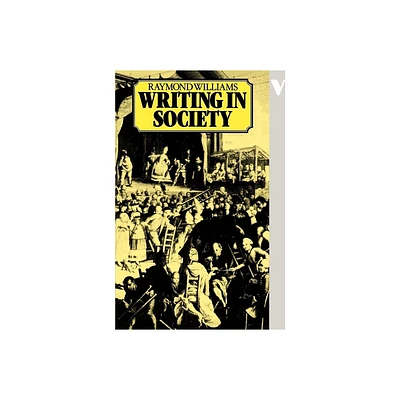Home
A Handwritten Modern Classic
Loading Inventory...
Barnes and Noble
A Handwritten Modern Classic
Current price: $24.95


Barnes and Noble
A Handwritten Modern Classic
Current price: $24.95
Loading Inventory...
Size: OS
*Product Information may vary - to confirm product availability, pricing, and additional information please contact Barnes and Noble
Gertrude Stein in her 1926 lecture on
Composition as Explanation
wrote: "The creator of the new composition in the arts is an outlaw, until [s]he is a classic..."
In the tradition of Gertrude Stein, Finola Moorhead set about writing
A Handwritten Modern Classic
in 1977. The result ismusings and criticisms dwells on protestors clashing with police over freeways, political change, conservatism, Malcolm Fraser, what love can do for you, and whether the old hate the young. With discussions on the politics of suicide and unshaven armpits, one of Australia's most intriguing experimental writers has set her thoughts to writing, with mention of such famed writers as Socrates and Jane Austen, Coleridge and Tolstoy, as well as the battles between romanticism and jingoism in Australian writing. The book also brings up issues such as imperialism in language use, popularity in writing, and giving in to what the market wants from literary creation. Written—by hand—in the tradition of European and American manifestos, this document challenges readers and writers alike not to fall for a romantic view of the world.
Composition as Explanation
wrote: "The creator of the new composition in the arts is an outlaw, until [s]he is a classic..."
In the tradition of Gertrude Stein, Finola Moorhead set about writing
A Handwritten Modern Classic
in 1977. The result ismusings and criticisms dwells on protestors clashing with police over freeways, political change, conservatism, Malcolm Fraser, what love can do for you, and whether the old hate the young. With discussions on the politics of suicide and unshaven armpits, one of Australia's most intriguing experimental writers has set her thoughts to writing, with mention of such famed writers as Socrates and Jane Austen, Coleridge and Tolstoy, as well as the battles between romanticism and jingoism in Australian writing. The book also brings up issues such as imperialism in language use, popularity in writing, and giving in to what the market wants from literary creation. Written—by hand—in the tradition of European and American manifestos, this document challenges readers and writers alike not to fall for a romantic view of the world.


















